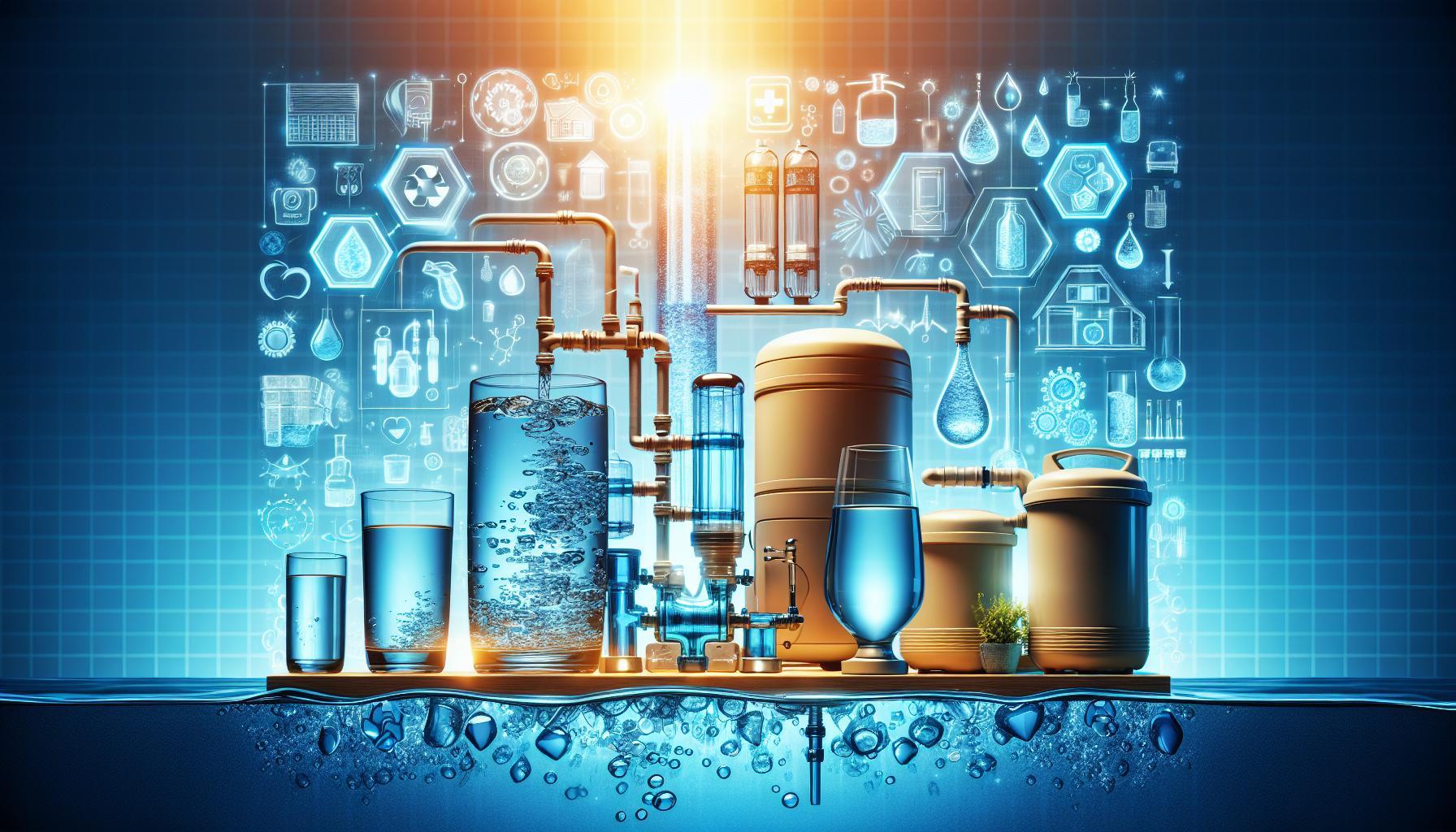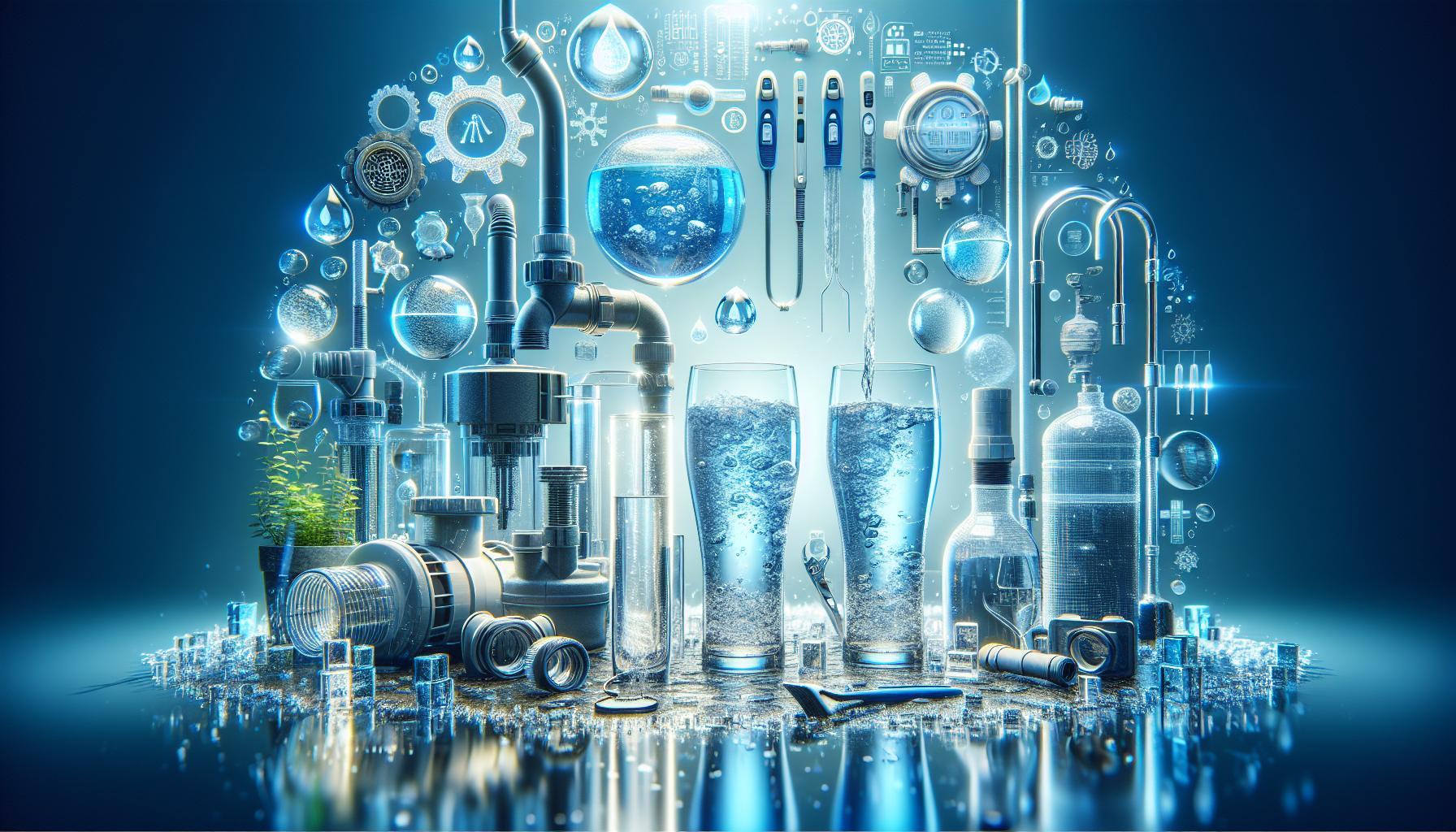Navigating hydration during pregnancy can be challenging, leading many expectant mothers to wonder whether alkaline water is a safe choice. Understanding its potential benefits and risks is crucial, as maintaining proper hydration supports both maternal health and fetal development. Discover the insights and recommendations on incorporating alkaline water into your daily routine safely.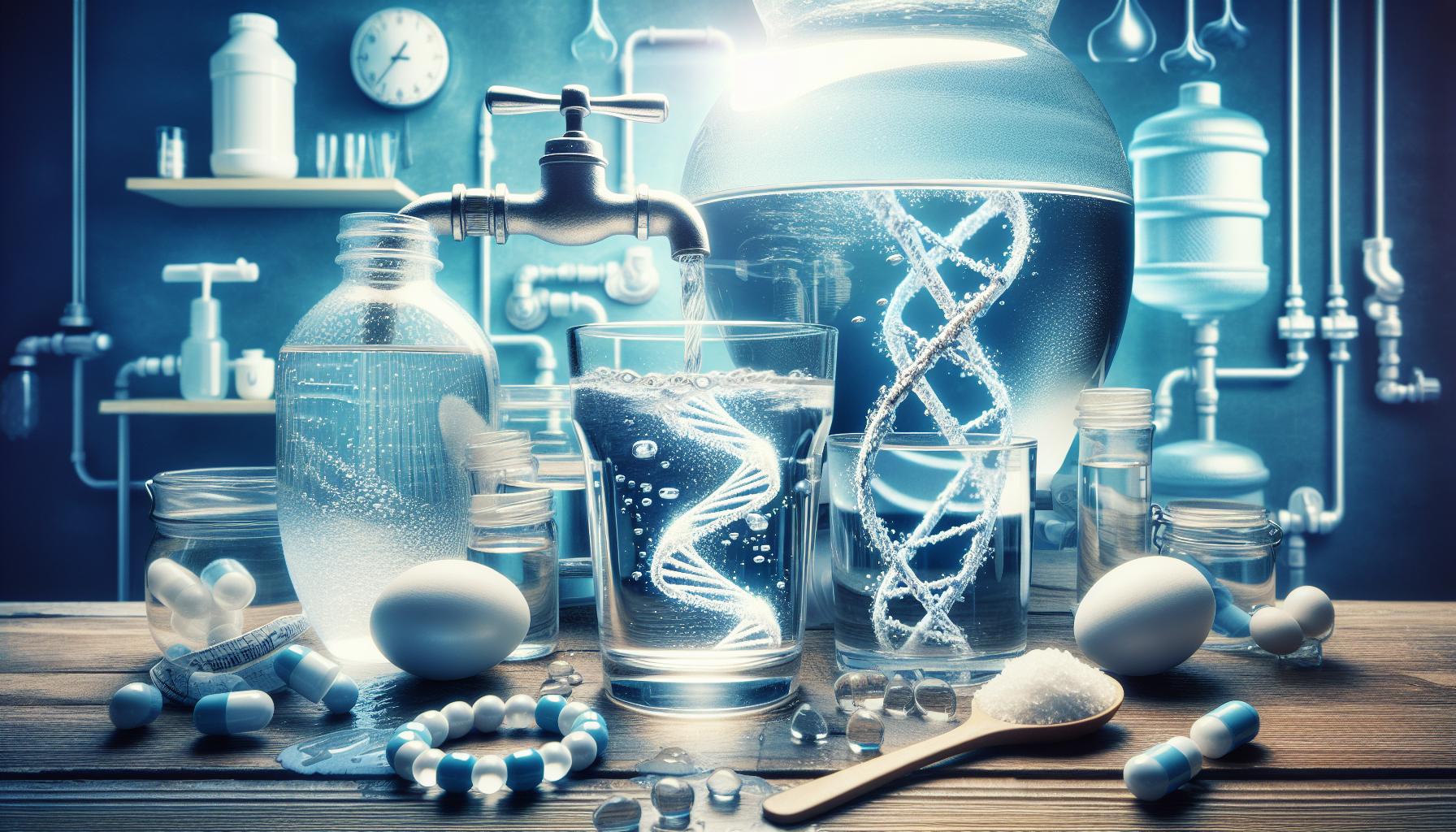
Understanding Alkaline Water: What It Is and How It Differs from Regular Water
Water is essential for life, and while most people are accustomed to drinking regular tap or bottled water, there has been a growing interest in alkaline water. This specialized type of water has a higher pH level than standard water, typically measuring above 7 on the pH scale. Understanding the differences between alkaline and regular water is crucial, especially for pregnant women seeking safe hydration options.
One of the primary differences lies in the composition of alkaline water, which contains alkaline minerals such as calcium, potassium, and magnesium. These minerals not only affect the water’s pH but may also provide additional health benefits. For instance, some proponents of alkaline water believe it can help balance the body’s acidity, promote hydration, and even improve metabolism. In contrast, regular water, whether from a municipal supply or a natural source, generally does not have these additional minerals, which can impact its pH and potential health benefits.
Benefits of Alkaline Water
Alkaline water proponents often tout several potential health benefits, including:
- Enhanced hydration: Some studies suggest alkaline water may be more hydrating compared to regular water, although evidence is still inconclusive.
- Acid-base balance: Consuming alkaline water can help neutralize excess acidity in the body, although this effect is debated among experts.
- Antioxidant properties: Alkaline water may contain more antioxidants, which can assist in fighting free radicals in the body.
Despite these claims, it’s essential to approach them with caution. Pregnant women should consult healthcare professionals before making significant changes to hydration habits, especially regarding consuming alkaline water. The discussion in the article titled ‘Is Alkaline Water Safe for Pregnancy? Expert Insights for Moms-to-Be’ emphasizes the importance of ensuring any dietary choice, including water consumption, is safe and beneficial for both the mother and the developing baby.
In summary, while alkaline water presents interesting differences from regular water, its effects and benefits are still subjects of ongoing research. As mothers-to-be navigate their hydration options, understanding these nuances will empower them to make informed decisions for a healthy pregnancy.
The Nutritional Benefits of Alkaline Water for Pregnant Women
The journey of pregnancy brings about a host of changes, not only physically but also in lifestyle choices, including hydration. One intriguing aspect that has emerged is the impact of alkaline water on the health of expectant mothers. Many women wonder about the safety and benefits of incorporating alkaline water into their diets, especially during this crucial time. Alkaline water is believed to offer various nutritional benefits that can potentially ease pregnancy-related discomforts and promote overall well-being.
Relief from Common Pregnancy Symptoms
Pregnancy can often come with its fair share of discomforts, including morning sickness and indigestion. Drinking alkaline water has been reported to provide some relief from these symptoms. With its higher pH level, alkaline water may help neutralize stomach acid, offering a soothing effect to those dealing with nausea or heartburn. Furthermore, maintaining proper hydration with both alkaline and regular water is essential for combating constipation, a common issue during pregnancy, as it helps facilitate digestion and nutrient absorption [[2]].
Enhanced Nutrient Absorption
Consider incorporating alkaline water into your daily routine to optimize nutrient uptake crucial for both mother and baby. Alkaline water contains minerals like calcium, magnesium, and potassium, which play a vital role in the development of the fetus. These minerals not only support bone health and muscle function in the mother but also contribute to the optimal development of the baby’s skeletal system [[1]]. Regular consumption can help maintain sufficient mineral levels, thereby minimizing potential deficiencies during pregnancy.
Preventing Dehydration
Staying properly hydrated is paramount during pregnancy, as dehydration can lead to complications such as preterm labor or low amniotic fluid levels. Alkaline water can be a refreshing alternative to plain water, making it easier to meet daily hydration goals. Additionally, the minerals found in alkaline water may assist in electrolyte balance, which is particularly important as the body undergoes various changes during this time. Ensuring a good mix of alkaline and regular water can help optimize fluid intake without compromising the balance needed for the body’s efficient functioning [[3]].
In summary, the potential nutritional benefits of alkaline water during pregnancy are considerable. From aiding in the relief of common discomforts to promoting better nutrient absorption and hydration, alkaline water can play a supportive role in your wellness journey as you navigate this exciting chapter of life.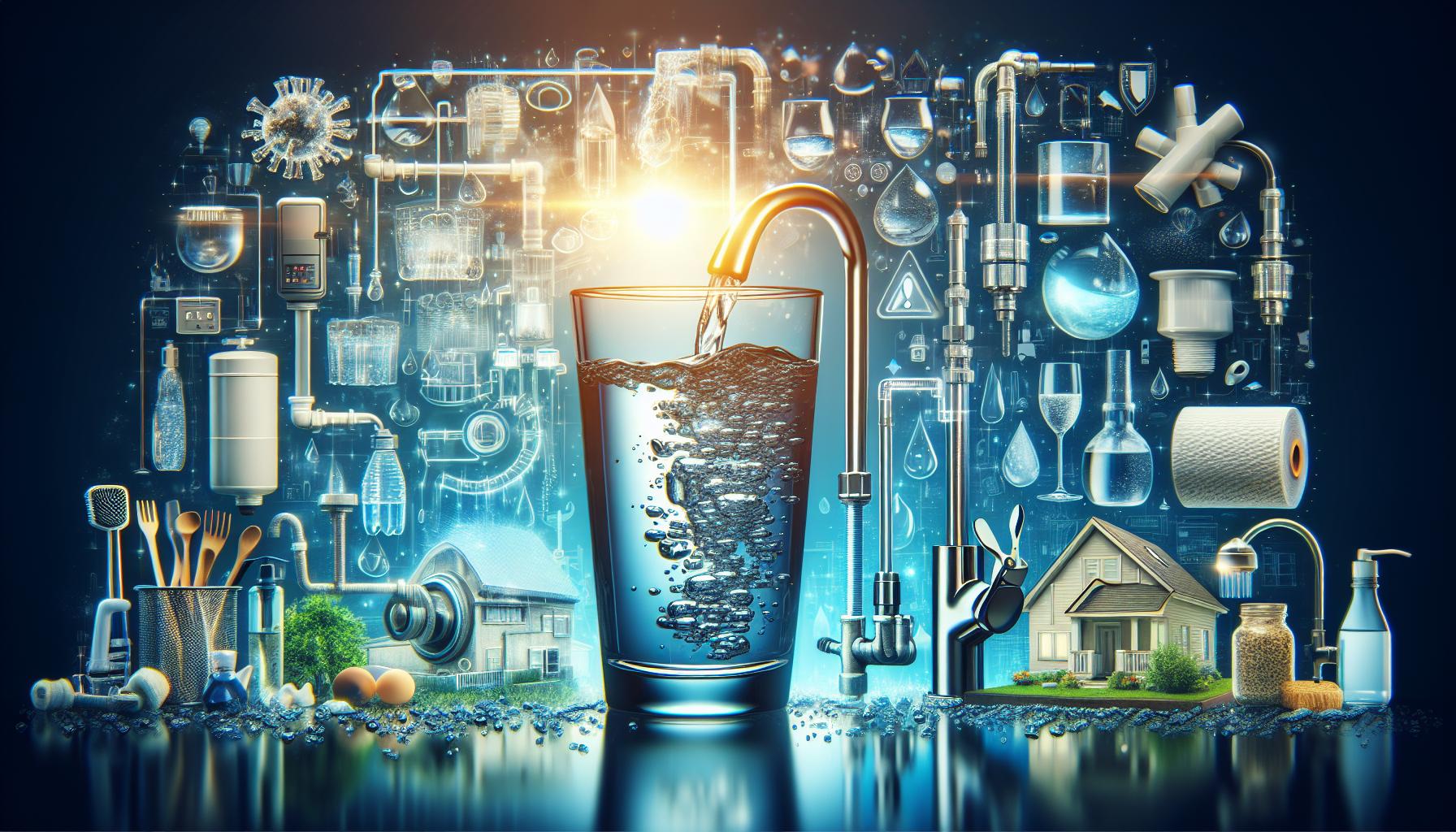
Expert Advice: Is Alkaline Water Safe During Pregnancy?
Pregnancy is a time when many expectant mothers reevaluate their diet and beverage choices, aiming to support their health and that of their developing baby. Alkaline water has become increasingly popular in wellness circles, but its safety and benefits during pregnancy can be a source of confusion. Understanding whether alkaline water is truly beneficial or simply a trend can empower moms-to-be to make informed choices about their hydration.
Is Alkaline Water Safe to Drink During Pregnancy?
Research indicates that alkaline water is generally considered safe for pregnant women. It tends to have a higher pH level compared to regular water, which some proponents suggest may help counteract acidity in the body. However, it’s essential to note that while consumption is safe, the research does not robustly support significant health benefits associated with alkaline water over regular water. Instead, maintaining optimal hydration levels is the critical factor during pregnancy, which can be effectively achieved through regular water intake [[2]].
When incorporating alkaline water into your pregnancy diet, moderation is key. Many experts recommend it as an addition rather than a replacement for plain water due to its mineral content that can aid hydration [[1]]. It can offer minerals and may help with overall hydration, crucial during this time when fluid intake needs increase [[3]].
While alkaline water poses no significant risks, it’s vital to consider individual health conditions. For example, if you have specific health issues or concerns regarding acidity, discussing your hydration options with a healthcare provider is advisable. Ultimately, whether you choose to sip on alkaline water or stick with the classic option, the key is to stay well-hydrated and balanced throughout your pregnancy journey.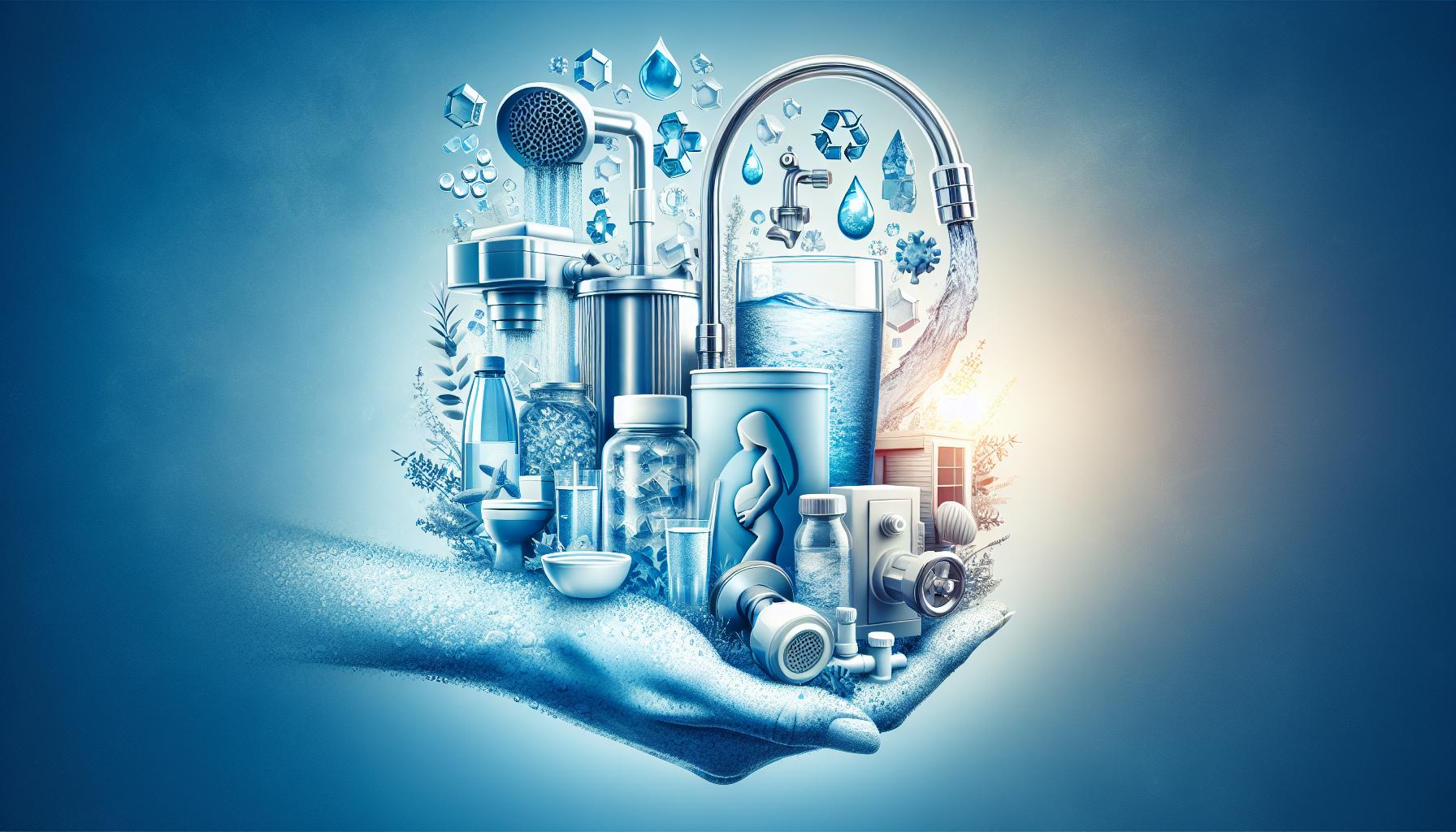
Potential Risks: What Expectant Moms Should Know
Drinking water during pregnancy is crucial for the health of both the mother and the developing fetus. With various options available, some expectant mothers are exploring alkaline water due to its perceived benefits. However, it’s essential to understand the potential risks associated with its consumption. Although alkaline water is often touted for its ability to neutralize acidity in the body, the reality is that its impact on pregnancy is not fully understood and requires caution.
Research indicates that while alkaline water can help alleviate issues like morning sickness and indigestion, it might not be suitable as the primary source of hydration. It’s important to maintain a balanced intake of both alkaline and regular water to ensure proper hydration. This is crucial since regular water has natural minerals that help maintain essential bodily functions. Expectant mothers should be wary of excessively high pH levels, which could disrupt the body’s natural balance.
Moreover, there’s no strong scientific evidence to definitively prove that alkaline water is beneficial specifically for pregnancy. As highlighted by experts, the key to a healthy pregnancy lies in a well-rounded diet combined with adequate hydration. Relying solely on alkaline water could lead to an imbalance in nutrient intake, as it might provide insufficient essential minerals compared to other sources of water [[2]](https://naturopress.com/blogs/alkaline-water/drinking-alkaline-water-during-pregnancy) [[3]](https://thebabyspot.ca/alkaline-water-pregnancy).
Expecting mothers should also consider the source of alkaline water, as not all bottled waters are created equal. Some commercial brands may contain additives or impurities that could pose risks to the developing baby. Therefore, it is advisable to consult with healthcare providers before making any significant changes to one’s diet, including the introduction of alkaline water. Keeping a diverse fluid intake ensures both hydration and nutritional balance, underscoring the essential nature of expert insights on prenatal health and well-being.
Hydration Needs in Pregnancy: Can Alkaline Water Help?
Staying well-hydrated during pregnancy is crucial for both the mother and the developing baby. Water plays a vital role in various bodily functions, including nutrient transport, temperature regulation, and waste elimination. While expectant mothers often contemplate their hydration sources, the question arises: Is alkaline water a beneficial choice during this transformative time?
Understanding Alkaline Water
Alkaline water has a higher pH level than regular drinking water, which typically has a neutral pH of around 7. Proponents of alkaline water claim that its consumption can help neutralize acidity in the body, improve hydration, and even boost energy levels. However, these claims can vary, and it’s essential for pregnant women to evaluate their hydration options thoughtfully.
- Balance in pH: Alkaline water generally ranges from a pH of 7.5 to 9.5, which some believe can help maintain a healthy balance in the body’s pH levels during pregnancy.
- Rich in Minerals: Many alkaline waters are infused with essential minerals like calcium, magnesium, and potassium, which are beneficial for overall health.
- Enhanced Hydration: Some women report feeling more hydrated with alkaline water, which may help alleviate common pregnancy discomforts such as swelling and fatigue.
Hydration Needs During Pregnancy
Pregnant individuals have increased hydration needs compared to non-pregnant individuals. It’s often recommended that expecting mothers drink at least 10 to 12 cups of fluids daily, which includes not just water but also fruits and vegetables high in water content. The quality of hydration sources is just as important as quantity. Here’s a quick comparison of different hydration options during pregnancy:
| Hydration Source | Benefits | Considerations |
|---|---|---|
| Regular Water | Essential for hydration, generally pH neutral. | Quality can vary; ensure it’s clean and filtered. |
| Alkaline Water | May offer enhanced hydration and mineral benefits. | Potential for overconsumption of minerals; consult with a healthcare professional. |
| Fruit-Infused Water | Adds flavor and vitamins to hydration. | Watch for added sugars from certain fruits. |
| Herbal Teas | Can be a source of hydration; some teas might have additional benefits. | Check for caffeine content; some herbs may interfere with pregnancy. |
Making the Right Choice
While alkaline water can be consumed as part of a balanced hydration strategy, it’s essential to focus on moderation. Pregnant women should discuss any dietary changes, including the introduction of alkaline water, with their healthcare provider. Since every pregnancy is unique, gaining expert insights on hydration needs can ensure that moms-to-be are making choices that best support their health. Always remember: proper hydration during pregnancy not only contributes to maternal well-being but also supports optimal fetal development.
Common Myths About Alkaline Water Debunked
A wave of interest surrounds the health benefits of alkaline water, especially among expectant mothers seeking optimal hydration for both themselves and their developing babies. However, alongside the growing popularity of alkaline water, several myths have emerged that could lead to confusion rather than clarity when it comes to safety and health impacts during pregnancy. Let’s explore and debunk some of these commonly held misconceptions.
Myth 1: Alkaline Water Can Prevent Pregnancy Complications
A pervasive belief is that drinking alkaline water can prevent pregnancy complications such as preeclampsia or gestational diabetes. While hydration is crucial during pregnancy, there’s no scientific evidence supporting the notion that alkaline water is significantly more effective than regular water in preventing these conditions. Expecting mothers should focus on a balanced diet and regular prenatal check-ups rather than relying solely on alkaline water for preventative measures.
Myth 2: Alkaline Water Is Always Healthier Than Regular Water
Another myth claims that because alkaline water has a higher pH, it is inherently healthier than regular, neutral water. The truth is that the body regulates its pH levels quite effectively. Consuming alkaline water in moderation is generally safe, but it doesn’t necessarily provide extra health benefits compared to regular water. Both forms of hydration can support overall health, but excessively consuming alkaline water can lead to alkalosis, a condition caused by an imbalance in the body’s pH levels.
Myth 3: Alkaline Water Is Detoxifying
The idea that alkaline water can detoxify the body is a common misconception. While proper hydration assists the body’s natural detoxification processes, the specific properties of alkaline water do not enhance this cleansing ability. The liver and kidneys are naturally efficient at eliminating toxins, and staying hydrated with any source of water supports this function. Instead of focusing on alkalinity, pregnant women should ensure they’re maintaining proper hydration and nutrient intake through a well-rounded diet.
Expert Recommendations
To clarify the best practices regarding hydration during pregnancy, consider the following expert insights:
- Consult with healthcare providers: Always discuss your hydration habits and any specific diets with your doctor or obstetrician.
- Prioritize balanced nutrition: Focus on a varied diet rich in fruits, vegetables, and essential nutrients rather than relying primarily on alkaline water.
- Monitor pH levels: If you choose to drink alkaline water, do so in moderation and monitor how your body responds.
By dispelling these myths about alkaline water and emphasizing factual information, pregnant women can make informed choices that support their health and well-being during this critical time. Remember, hydration’s true benefits come from consistency and balance rather than excessive variation in pH levels.
Choosing the Right Water: Tips for Expectant Mothers
During pregnancy, the choice of water can significantly impact both maternal health and fetal development. One emerging question among expectant mothers is whether alkaline water is a safe option. Alkaline water, with its higher pH level compared to regular water, is often marketed for its potential health benefits, but it’s crucial to consider evidence and expert insights before making any dietary changes.
Understanding Alkaline Water and Its Composition
Alkaline water typically contains minerals such as calcium, magnesium, and potassium, which can contribute to its alkalinity. While some proponents claim that consuming alkaline water can help with hydration and electrolyte balance, it’s essential for pregnant women to prioritize hydration from safe and reliable sources.
When choosing water during pregnancy, consider the following tips:
- Opt for Purity: Always choose bottled or filtered water that is free from contaminants. Look for brands that provide clear information about their purification processes.
- Monitor pH Levels: If considering alkaline water, check the pH level. A neutral pH of around 7 is typically sufficient for hydration. Excessively high pH levels could interfere with your body’s natural balance.
- Hydration Variety: Drinking a mix of beverages can help cover nutritional bases. Incorporate coconut water for natural electrolytes, or herbal teas that are safe during pregnancy.
Consulting Healthcare Professionals
Before incorporating alkaline water into your routine, discussing your dietary choices with a healthcare provider is vital. They can guide you on suitable hydration practices tailored to your individual health needs during pregnancy. It’s also helpful to ask about any specific brand recommendations or water sources that they trust.
Practical Tips for Safe Hydration
Maintaining proper hydration is vital for bodily functions during pregnancy. Here’s a quick reference table of fluid intake recommendations:
| Activity Level | Daily Water Intake (Approximate) |
|---|---|
| Sedentary | 2.3 liters (10 cups) |
| Moderately Active | 2.5-3 liters (11-13 cups) |
| Highly Active | 3-4 liters (13-17 cups) |
In conclusion, while exploring options like alkaline water, remember that the most crucial factor is ensuring you stay properly hydrated with clean, safe sources. Each mother’s journey is unique, making personalized choices vital for a healthy pregnancy.
Listening to Your Body: Signs You Need to Monitor Your Water Intake
Listening to your body’s signals is crucial, especially during pregnancy when maintaining proper hydration can significantly impact both maternal health and fetal development. One of the most telling signs that you need to focus on your water intake is feeling thirsty. This instinctual cue is your body’s way of signaling that it requires additional fluids to function optimally. Inadequate hydration can manifest in various subtle and overt ways, demanding your attention to ensure both you and your baby are thriving.
Common Signs Indicating the Need for Increased Hydration
Pay attention to the following indicators that may suggest you need to monitor and possibly enhance your water intake:
- Increased Fatigue: If you find yourself feeling unusually tired, it could be that your body is not getting enough fluids, leading to decreased energy levels.
- Dry Skin or Lips: Insufficient hydration often results in noticeable changes in your skin’s texture, including dryness or chapped lips.
- Dark Urine: Monitoring the color of your urine can be a practical approach—dark yellow indicates dehydration, while light straw-colored urine typically signifies adequate hydration.
- Dizziness or Lightheadedness: These symptoms can arise from low fluid levels, particularly if you experience sudden changes in position.
Maintaining hydration during pregnancy not only keeps these symptoms at bay but is also essential for your overall health and your baby’s development. Pregnant individuals should be especially aware that water intake recommendations can vary based on factors such as activity level, climate, and individual health conditions. It’s advised to drink plenty of fluids throughout the day and be mindful of hydration cues, ensuring your body is supported during this critical time.
Practical Tips for Staying Hydrated
To establish better hydration habits, consider the following practical steps:
- Set Reminders: Use your phone or a hydration app to remind yourself to drink water regularly throughout the day.
- Carry a Water Bottle: Keeping a reusable water bottle on hand can encourage you to sip throughout the day.
- Incorporate Water-Rich Foods: Include fruits and vegetables with high water content, such as cucumbers, oranges, and strawberries, into your meals.
Being proactive about your hydration can lead to a healthier pregnancy experience. For expectant mothers wondering about specific types of water, including alkaline water, consult professional insights for a clearer understanding of its impact during this unique time, as explored in discussions about *Is Alkaline Water Safe for Pregnancy?* Adjusting your hydration based on personal needs and expert advice will support you and your developing baby in the best possible way.
Q&A
Is alkaline water safe for pregnancy?
Yes, alkaline water is generally safe for pregnant women when consumed in moderation. However, it is important not to rely solely on it for hydration.
Experts agree that maintaining a balanced diet and drinking a mix of regular and alkaline water is beneficial. Consulting with your doctor can provide personalized advice tailored to your pregnancy needs.
What are the benefits of drinking alkaline water during pregnancy?
Drinking alkaline water may offer some benefits, such as potential relief from morning sickness and indigestion. However, research supporting these benefits is limited.
It’s essential to monitor your body’s response and ensure you stay hydrated with a variety of fluids. Alkaline water can be a part of a balanced hydration strategy during this important time.
Can I drink only alkaline water during my pregnancy?
No, it is not recommended to drink only alkaline water during pregnancy. A diverse fluid intake is crucial.
While alkaline water can be included, it should complement regular water consumption. A varied hydration routine helps ensure adequate nutrient intake and overall wellbeing.
How does alkaline water affect morning sickness?
Some pregnant women report that alkaline water helps to relieve symptoms of morning sickness. It may aid digestion and improve hydration.
Yet, individual experiences vary, so it’s best to listen to your body. Discussing these symptoms with your healthcare provider can lead to effective management strategies.
Is there a risk of drinking too much alkaline water during pregnancy?
Yes, excessive consumption of alkaline water can lead to an imbalance in your body’s pH levels. It’s crucial to maintain moderation.
Overdoing it can have unintended effects, such as upset stomach or other digestive issues, which could be counterproductive during pregnancy. Balance is essential for optimum health.
Why do some people prefer alkaline water during pregnancy?
People often prefer alkaline water for its claimed health benefits, like improved hydration and reduced acidity in the body. These factors can appeal during pregnancy.
Nevertheless, it’s important to prioritize sources of hydration that are scientifically proven effective. Relying on regular water is just as important for your overall health during this time.
What should I consult my doctor about regarding alkaline water?
You should discuss your interest in alkaline water with your doctor to ensure it complements your dietary needs and overall health plan during pregnancy.
Specifically, ask about your hydration strategy, any potential concerns with acidity levels, or interactions with prenatal vitamins.
Is it better to drink alkaline or regular water during pregnancy?
There is no definitive answer; blending both alkaline and regular water is often recommended for optimal hydration during pregnancy.
This approach helps you take advantage of the potential benefits of alkaline water while ensuring you receive the essential hydration your body needs. Explore more about hydration strategies during pregnancy to find what works best for you.
In Conclusion
In conclusion, drinking alkaline water during pregnancy can offer several benefits, including relief from morning sickness and improved hydration. It is essential to strike a balance by incorporating both alkaline and regular water into your daily routine. This approach can help maintain your body’s mineral balance and support your overall health during this critical time. As always, consult with your healthcare provider before making any significant changes to your diet or hydration practices. Exploring the nuances of alkaline water can empower you to make informed choices that best support your pregnancy journey. For more insights and tips on maintaining optimal hydration and wellness during pregnancy, stay engaged and continue your research!



